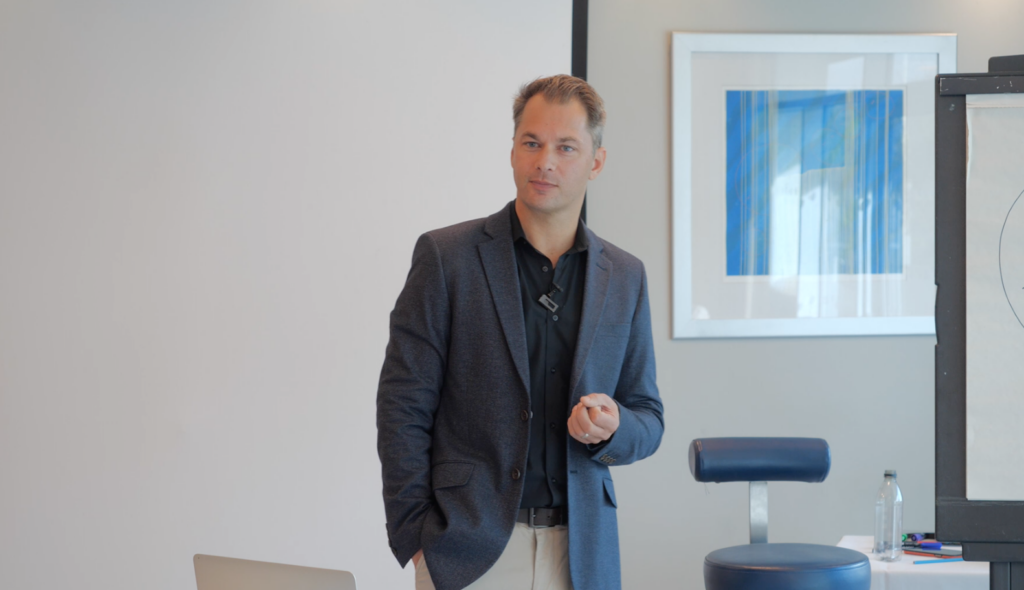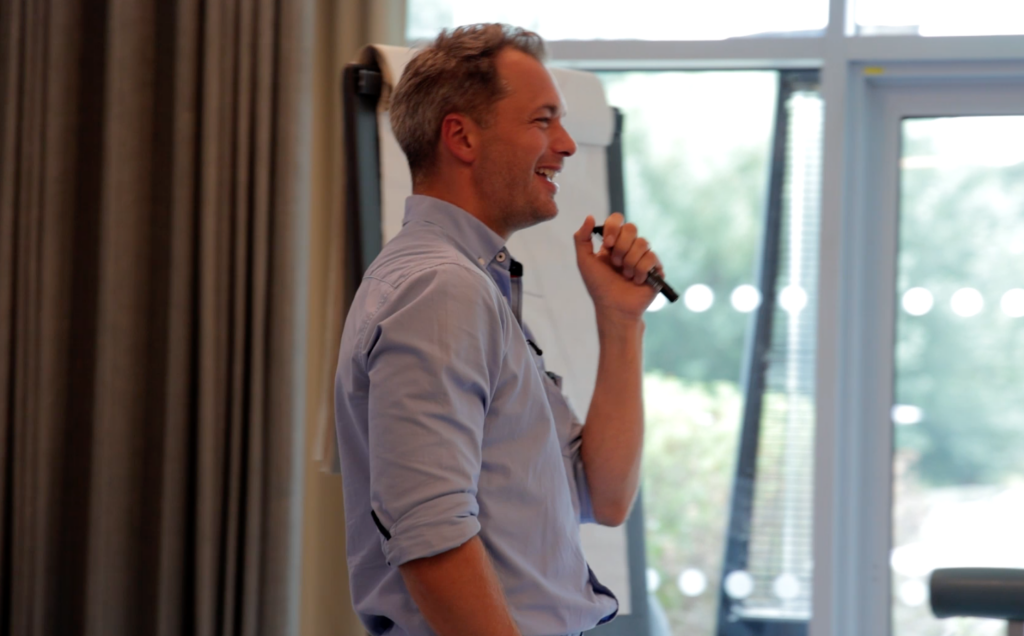People often ask me what the difference is between therapy and life coaching because I used to work as a therapist.
Depending on who you ask you will get very different answers…
And that’s due to unfamiliarity with the different professions on both sides.
Working as a therapist in the NHS I started to feel that I wasn’t fulfilling my true potential.
I noticed how the clients I enjoyed working with the most were successful people who wanted a bit of support.
Maybe they just got a bit nervous speaking in public, or they were going through a relationship breakup, or other transition but ordinarily were doing very well in life.
In contrast, the clients I liked working with the least, were the type who were struggling to function due to severe depression or anxiety.
As I now reflect, the former didn’t need therapy, what they wanted was coaching. And this is why coaching exists, to work with those that don’t need therapy.
A DEEPER LOOK
Starting to ask questions about this all, what I came to realise was that therapy was never designed to make people happy, or support people to live their best selves.
This might sound surprising but stay with me here.
Therapy was designed to help people who were struggling to function. To take those from feeling dysfunctional to feeling functional. In fact, with the prominent therapy used in the NHS (CBT), happiness is dismissed as less important than behavioural goals, such as getting back to work or other societal norms.
At this point I lost my passion.
The reality is that you can’t even get therapy on the NHS if you’re not struggling to function.
When I used to work in the NHS some colleagues and I used to fiddle the scores on the symptom questionnaires to be able to offer some people a service.
Don’t tell anyone!
The whole premise of the NHS model for psychotherapy is simply based on getting people functioning and back to work.
You can look this up for yourself in the Lanyard report. The basis of justifying the funding for therapy in the NHS is that it’s cheaper for the economy to offer therapy than have people off work sick from stress.
But with that offering of therapy you only get a certain number of sessions. And if you don’t get better in that time, it’s tough.
There’s a whole lot of research into how offering short term therapy might be unhelpful, not least to mention the message it sends someone who’s struggling when they aren’t feeling better in just a few sessions.
A MODEL THAT’S NOT RIGHT FOR HEALTH
Therapy is based on the medical model, and if you really look at it, the medical model wasn’t designed to make people healthy.
It was designed to treat disease.
The distinction may seem subtle, but the motivation behind these differences is huge.
When you’re seeking to treat an illness or disease, your intention and motivation is one of avoidance, to get away from something you don’t want, rather than being inspired to get towards something that you do want.
In fact, there’s not much in our society that is focused on proactive health and well-being and happiness.
Most is reactive and focused on diagnosable disorders. Self-care is a multi-billion-pound industry when it comes to things like pamper packages that have nothing to do with true wellbeing.
MY REFLECTIONS
So, I reflected how therapists aren’t trained to make people happy and never in my eight years of training to become an accredited Psychotherapist did I come across any lectures, journal articles, training, or recommended reading to help people reach happiness. It was all about treating diagnosable disorders and helping people to function.
Once I remembered that becoming a therapist was never the end game for me, my passion returned, and I studied coaching psychology.
Coaching is a different approach to therapy because it works with people who are already at a good-to-high level of functioning but who want more from themselves.
Coaching is designed to make you more fulfilled, content, and passionate because you will be living your life to the full.
A coach is less about helping you get away from poor mental health, and more about helping you realise your dreams and goals.
Although the way I work we do still help you transcend anxiety, self-doubt and confidence issues and reach true wellness.
I mean, show me someone who isn’t experiencing some level of low mood and/or anxiety in this dysfunctional society and I’ll show you someone in denial.
There is some crossover between coaching and therapy. Partly it depends on the type of therapy. There’s so many, and some are more solution focused and similar to coaching in some respects, some of the time.
HOW LIFE COACHES ARE SEEN
When considering the transition into life coaching, I found that therapists look down on coaches.
But I also discovered that, that was due to a lack of understanding about what life coaches actually offer as a separate and distinct discipline.
I should know, I was one of those therapists.
It’s funny but I assumed coaching was a bit fluffy and unscientific. Now I know that coaching goes even deeper than therapy. There is so much science behind coaching especially in the advances in coaching in the last 10 years.
Working in the NHS I was consistently at the top of my team in terms of recovery rates.
But I just felt so restricted.
Limited by the medical model I wasn’t reaching my full potential in my teaching.
I started to realise that I would love to work without the restrictions and limitations that working for the NHS brings.
There was no room for my curiosity or creativity and so after working privately in therapy for several years, I progressed into coaching.
AVOIDING BURNOUT
Another thing that motivated me to leave the therapy game is because so many therapists get burned out.
Seeing clients back-to-back hearing and processing all their pain, I wasn’t willing to go down that route.
Someone joked with me and said I couldn’t hack it in the NHS. I can see their viewpoint, but I see it differently.
Why should I stay working somewhere that was bad for my health when I’m trying to promote good health?
For me, staying somewhere where my skillset wasn’t being fully utilised with colleagues who were miserable and going off sick seemed unsatisfactory.
Most felt stuck, I didn’t.
I wasn’t willing to go home emotionally exhausted and have nothing left to give to the people I loved the most.
For me, quitting wasn’t really quitting.
It takes courage.
For me it wasn’t giving up, it was moving forward.
Demanding more.
For me it was an act of positive self-worth and leaving an environment that no longer served me.
I’d worked my way up to a senior psychotherapist and then took a job as a senior lecturer. But again this restricted me. I wanted to teach true wellbeing, not what I was being told to teach.
So here I am. I started Chris Finn Coaching.
NO LIMITS
What I love about coaching is that it is more of a partnership with less of an imbalance of power. Therapy is time limited. Coaching is not. Ideally in coaching you want to develop an ongoing partnership with your coach.
In coaching I can broaden the support I offer drawing on a wider range of skills, tools, and techniques I can offer compared to therapy.
Coaching goes deeper than psychotherapy. We go into the nature of what it means to be a human being, how the mind works, the nervous system, the neuroscience and using that to realise awesome dreams.
In coaching I can share more of what I’ve learnt, rather than just asking questions, and being restricted to a therapy model.
Psychotherapy comes with the stance that there’s a problem, something wrong.
Coaching comes with the perspective that everything is right with you, you just need to tap into the wisdom and strengths of being human.
For various reasons coaching has much more energy which means faster progression.
For me, one big difference is how much of myself I can bring.
I’m some forms of therapy the therapist is expected to be a blank slate, devoid of personality.
There’s a separation between the therapist and their work.
In coaching you can bring your full self, show your personality and clients can be inspired by your story and the way you live your life and how you show up in the world.
So, in coaching there’s really is no limitations to what you can achieve together in your partnership with your coach.
I learnt a huge amount about human behaviour in my many years of academic training, research, and lecturing.
But it was retraining as a coach that really enabled me to put everything I know together into my very own coaching model to enable you to release your full potential.
ARE YOU NEXT?
I work with a broad range of clients from leaders who get nervous presenting, budding entrepreneurs, people struggling with work/life balance and anyone who wants to find greater meaning and happiness in life.
Just like therapists and other health professionals continue their education to maintain their competence and develop new skills, coaches like me regularly seek out courses, workshops, other training opportunities and learning material to ensure we deliver the best possible product to clients.
One of the things I love about this work is the skill building that comes with it to develop my expertise.
The more I learn, the more I help my clients. Learning and coaching comes naturally to me and so I love sharing my gifts with anyone who is open to enhancing their life.
So, if you know there’s more to live and you want to reach your full potential, let’s talk.
I coach face to face in Dorset, and I also provide my life coaching Worldwide over Zoom.

